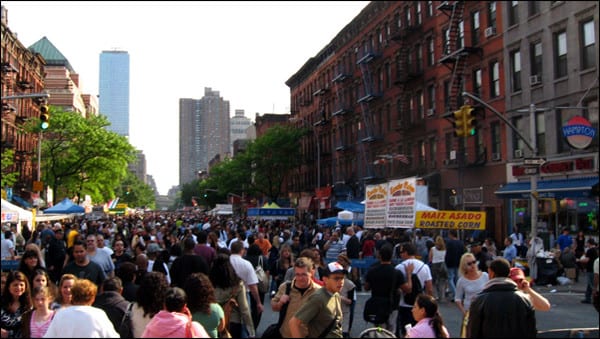
How profitable can a festival be? This edition of 'The Business of Fun' looks at two strategies. One festival is cashing in on the lucrative niche it has carved out for itself, the other is cashing out by accepting a buy out offer from a major corporation.
Cashing In
In the Business Beat section of the Santa Barbara View, Ray Estrada reports that the 28th annual Santa Barbara International Film Festival (SBIFF) may have been the “most lucrative” ever by selling out all of its screenings. Estrada quotes SBIFF director Roger Durling about the sales milestone.
“Usually, we sell out [some of the screenings], but not all of them.” Durling said.
In an earlier interview with the Hollywood Reporter, Roger Durling emphasized the importance of the festival’s niche appeal in a small town setting as being a contributing factor to profitability. The city of Santa Barbara is a relatively small town when compared to its host city contemporaries such as Cannes in France.
Santa Barbara's limited capacity contributes to the success of SBIFF because the event is carefully planned in advance. The advance planning includes specialized ticket packages that are tailored to the different attendee types (example: "film fanatic") and then offered during a narrow window of time (aka "ticket pre-sale"). The pre-sales provide area hotels, restaurants and small businesses with an educated guess on the demand for food and lodging. It is the cooperation between the festival, the city and the associated area businesses that has made SBIFF the lucrative endeavor it is today.
SBIFF cashes in on its niche appeal in a small town and intends to maintain that festival profitability strategy during the foreseeable future. There is another festival profitability strategy that is similar to the one used by Silicon Valley software start-ups...
Cashing Out
Silicon Valley start-ups are famous for their business plans that focus on being bought out by another company. A recent high profile buyout was the social photo sharing service Instagram, which was acquired by Facebook for one billion dollars. Mergers and acquisitions are common in the technology industry, but less so in the festival industry. That may be changing soon if the news of Brand Events being acquired by a large corporation becomes a measure of festival profitability.
The marquee Brand Events festival is The Taste of London (ToL), held each year in England. As seen in the video above, the ToL food festival is both a block party for local area residents as well as a holiday destination for visitors from Europe. In addition to the Taste of London, Brand Events also produces ‘The Big Festival’ hosted by celebrity chef Jamie Oliver.
Event Magazine broke the news that the co-owners are “cashing out” by accepting an acquisition offer.
Brand Events has sold Taste Festivals, its subsidiary which runs Taste of London and The Big Festival to entertainment company IMG Arts & Entertainment. Taste, which organized food festivals in 17 cities around the world, was sold for $8 million on Friday. Brand Events created Taste in 2004 with the first Taste of London held at Somerset House.
Chris Hughes, chief executive of Brand Events, told Event: "We’re very proud of Taste but thought it was time for it to move on to someone else. IMG is a global company with big resources, so it can take Taste to a new level. There’s no reason why there shouldn't be 100 Taste festivals and IMG is capable of doing that if it chooses to."
Event Magazine mentions that the acquisition was made despite the apparent lack of festival profitability, citing a purported loss of some $200,000. In response, Hughes says:
"The accounts are misleading, it was a very profitable business. Taste was a subsidiary company and Brand Events made management charges and fees."
It is important to note the scope and scale of the company that bought Brand Events. IMG is one of the largest event production companies in existence with offices all over the world. IMG makes the majority of its money as a production and marketing service for sporting events like soccer and college football.
Rather than build up ancillary events from scratch, IMG's strategy is to simply buy up festivals and then merge them into a sporting event they have in their roster. There is no word yet if IMG intends to move the dates of The Taste of London or The Big Festival to coincide with soccer games or Formula 1 racing.
Festival Profitability Begins with the Ticketing Software
Festival operators should consider the “exit strategy” of Brand Events. Since IMG prefers to buy well established festivals, and not cultivate their own, your festival profitability levels will need to exceed rival events.
Whether you are staying the course and cashing in like the Santa Barbara film festival, or looking to cash out through acquisition, you will need to be using a ticketing software that makes your festival as profitable as possible.
ThunderTix offers the tools to help improve festival profitability by lowering costs, most notable is that we do not charge you per-ticket fees. In addition to no fees, the ThunderTix festival plan helps keep ticket fraud at bay with support for multi-day wristbands and gate control using handheld barcode ticket scanners.
Be sure to take a look at our other features and sign up for a free trial today!
